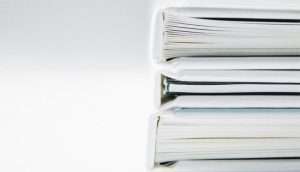If you have set up a limited company and are looking for the most tax-efficient ways to extract dividends and wages from Limited company, then this article is for you.
So, let’s dive deeper into the details without wasting a single moment.
Tax Efficient Cash Extraction from A Limited Company
For the tax-year 2020-21, the government has set a standard Personal Allowance limit of £12,500. It means that if your income is equal to or less than £12,500, you’ll pay no tax at all.
Now if you have set up a limited company, it entitles you to extract a further £2,000 of tax-free dividends. Taking into account this amount, your new tax-free personal allowance is £14,500.
And if you have got husband and wife arrangements in the limited company, then your tax-free income will double to £29000. It means that you’ll take £29000 to your home without paying any income tax at all.
| Income Type | £ |
| Personal Allowance | £12,500 |
| Tax-Free Dividends | £2,000 |
| Total Tax-Free Income | £14,500 |
*Provided that you are not receiving salary elsewhere.
However, if your company is not making any profit, then you can’t extract dividends.
It’s worth mentioning here that the structure of a Limited Company fits well if you’ve got multiple shareholders or people or you want to re-invest the money. Else, setting up a Limited Company will cost you more in terms of tax. Let’s explain this with an example:
| Tax Year 2020-21 | Limited Company | In Own Name |
| Profit | £100,00 | £100,000 |
| Profit Extraction | £83,000 | |
| Corporation Tax on Profits | £17,00 | |
| Personal Income Tax | £12, 238 | £27,500 |
| Total Tax | £29,238 | £27,500 |
As you can clearly see in the table, if you have set up a Limited Company and want to extract as much money as you can, then you have to pay Corporation Tax on Profits and Personal Income Tax as well – the combined effect of whom will be relatively greater when compared with income in your own name. And as your income goes higher, the tax-rates will increase drastically [we’ll discuss it below].
Contrarily, if you do not want to extract all the money from a Limited Company and want to invest the greater chunk, then you’ll gain a relatively greater tax relief that will save you a lot more money. Let’s explain this too with an example.
| Tax-Year 2020-21 | Limited Company | In Own Name |
| Profit | £100,000 | £100,000 |
| Profit Extraction | £50,000 | |
| Corporation Tax on Profits | £17,000 | |
| Personal Income Tax | £2,663 | £27,500 |
| Total Tax | £19,663 | £27,500 |
As is illustrated in the table, if you set up a Limited Company and does not extract all the money from it, rather keep the larger chunk for re-investment purpose, the amount of tax that you’ll be charged dropped significantly when compared with income in-your-own name.
Income Tax On Dividends
The amount of tax that you’ll be charged on dividends is directly linked to your Income Tax band. To know under which Income Tax Band you fall, add your dividend allowance into your total income.
If you extract dividends allowance amounting to £2,000, you’ll not be charged any income tax at all.
- If you fall in Basic Rate Income Tax Band, you’ll be charged income tax at a rate of 7.5
- If you fall in Higher Rate Income Tax Band, you’ll pay income tax at a rate of 32.5
- And if you fall in the Additional Rate Income Tax Band, you’ll pay income tax at a rate of 38.1.
Let’s explain this with an example.
Suppose you’ve received £33,000 in terms of salaries and another £4000 in terms of dividends in tax-year 2020-21. This translates into a total income of £37,000. You’ll be taxed as follow:
If your personal allowance for the tax-year 2020-21 is standard £12,500, you’ll be left with a taxable income of £24,500.
It means you fall in the Basic Rate Income Tax Band, so you will pay income tax as follow:
- 20 income tax on £20,500 of salaries
- No income tax on dividends amounting to £2000, because of the dividend allowance
- And you’ll be charged a 7.5 income tax on the rest of the £2,000 dividends.
So, if you are a higher rate taxpayer, it won’t be wise to set up a Limited Company.
Pensions Investment and Corporation Taxes
If you pay pension contributions through your Limited Company, it means a reduction in your taxable profits, and hence a decreased Corporation Tax Liability.
Let’s suppose that your company makes a profit of £110,000 and you pay £50,000 in terms of pension contributions. It means you are left with a net profit of £60,000 and at a 17 tax rate, you’ll only pay £11,400 in terms of income tax – see, now you have saved almost £9500 in terms of tax.
It’s worth mentioning here that you can go back a few tax years. And, if you want to wipe out these £10000, all you have to do is to simply add them to the pension contributions.
Our certified experts at IBISSANDCO have helped thousands of clients in reducing their tax receipts legally. Feel free to contact us to legally save your hard-earned money.




